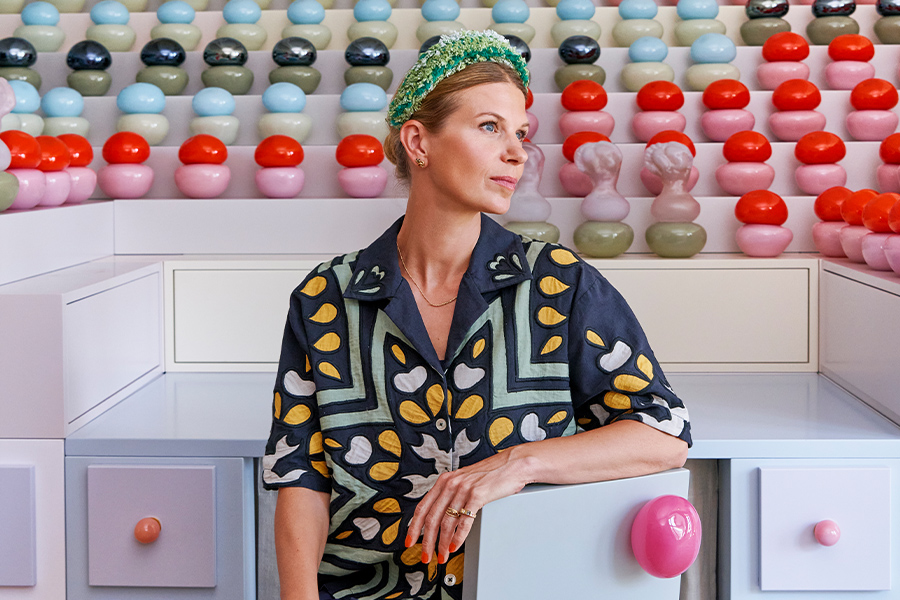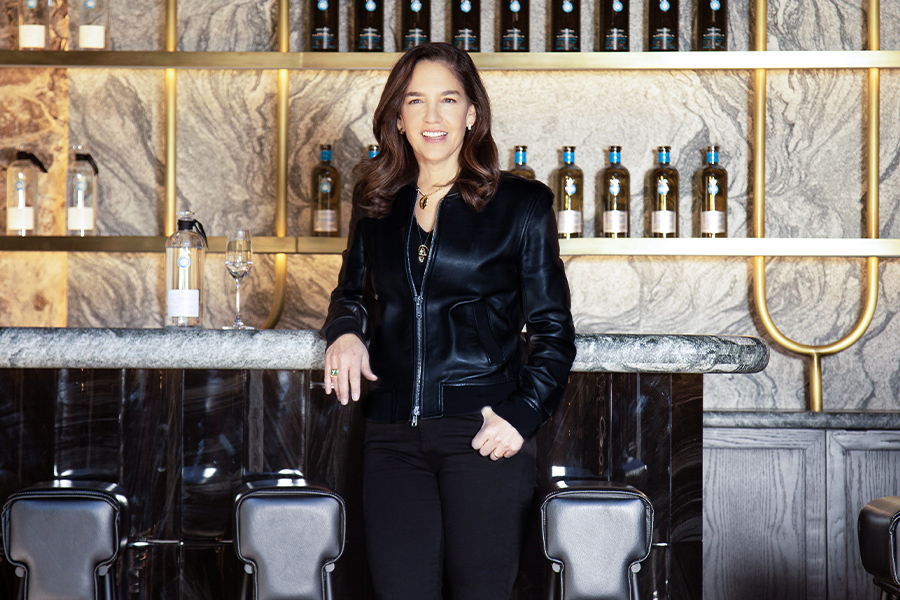It was during an internship at MTV Latin America on Lincoln Road that Tony Cho, a native of Central Florida, became enamored with Miami’s culture and vibe. “I fell in love with the confluence of international flavor that attracts people from all over the world,” says Cho, “and I decided I needed to learn Spanish.” This led him to enroll in an exchange program through Northwestern University, where he was a student, and travel to Latin America. It was there that he was introduced to hospitality and nightlife. He took to the industry, and upon returning to the States, immersed himself in South Florida’s nightlife, what he says jumpstarted his career.
Next came his real estate license, and Metro 1 was born. The fully integrated real estate brokerage, which is celebrating its 15th anniversary this year, focuses on “how art, culture, innovation, and design really determine a place,” explains Cho. As an environmental activist and philanthropist as well, it makes sense that the company is more than just a big-box agent. With the tagline “We Shape Neighborhoods,” Metro 1 recognizes and celebrates that an area can’t be revitalized without acknowledging its history and that, first and foremost, small independent businesses are the lifeblood of their communities.
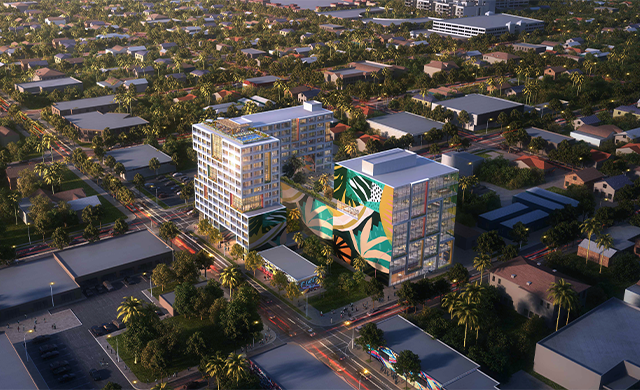
In partnership with Metro 1, the mixed-use complex Wynwood Gateway will become co-living pioneer the Collective’s Miami outpost
Applying this sentiment to projects across South Florida, Cho is one of the founding members of the Wynwood Business Improvement District, an initiative established in 2013 to transform a run-down midcentury warehouse district through the expression of street art. He also conceptualized the Magic City Innovation District in Little Haiti, which he describes as “a vision for a city of the future that’s sustainable and regenerative, as well as equitable in a very underserved community.” The neighborhood—where Metro 1 recently moved its offices into Thynk Global, a coworking space created for people of color and their allies—will be constructed in phases over a 10- to 15-year period.
Metro 1’s creativity-fostering, community-focused philosophy is especially relevant today, with COVID-19 impacting every facet of life. “Retail and real estate are going to become more community based, experiential, and omnichannel. It’s going to be about having a multifaceted business plan, not just brick and mortar,” says Cho. Furthermore, he sees the present climate as an opportunity to “re-wild” cities. While so many people are yearning to go off the grid, he argues that density is essential to maintain the current population and growth. “We need to create a wilderness environment that makes people smile and excited to live in cities again,” he says. “Rethinking the urban context is something I’m really passionate about.”
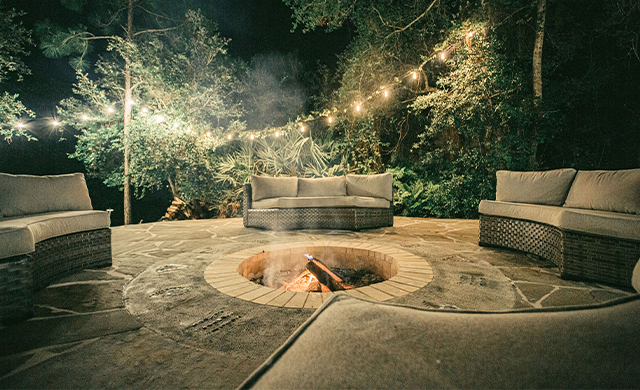
ChoZen’s Cosmic Firepit
Cho’s most recent endeavors include the launch of the M1 Community Fund and the Cho Family Foundation, two donor-advised philanthropic funds administered by the Miami Foundation that he started this year with his wife, Ximena Cho. There is also ChoZen, opening in January. After hosting intimate groups of visionary thinkers and friends at their sprawling home, an eco-retreat sanctuary nestled on the banks of the Saint Sebastian River in Sebastian, Florida, the couple wanted to share the property with a broader community. “It’s a container for thought leadership around environment stewardship, mindfulness, and spirituality,” Cho says. Geodesic domes and glamping tents have been added to the site, and an outdoor event space and a hydrotherapy spa are also in the works.
As Cho looks to the future, he feels resilience and fostering community, in South Florida and beyond, is more important than ever before. “We’ve kind of hit a wall and have a lot of issues—poverty, affordable housing, food and health equity, and racial justice—to deal with,” says Cho. “All of this stuff is coming to the surface because it has to. We’ve reached a critical moment where we have to make changes in order to evolve as a species.”
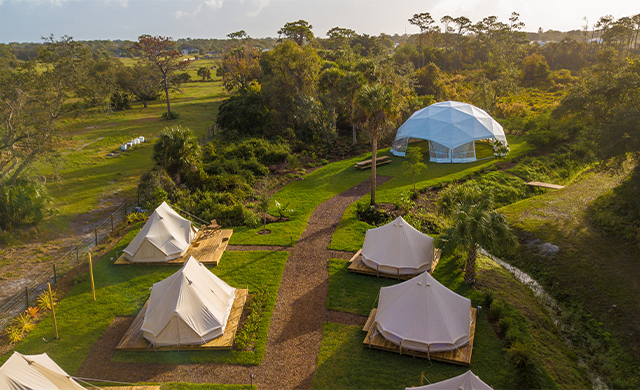
An aerial view of ChoZen’s safari camp
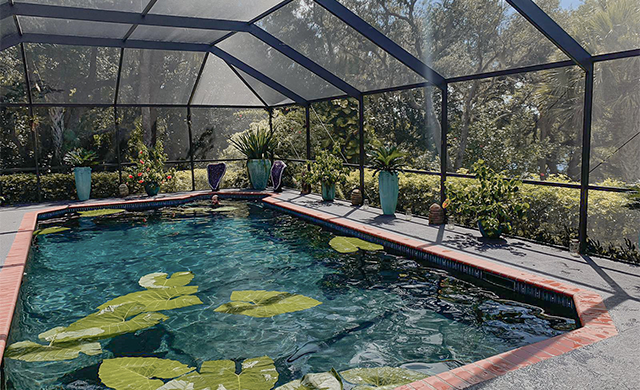
The glassed-in pool at ChoZen
This article originally appeared in HD’s November 2020 issue.

